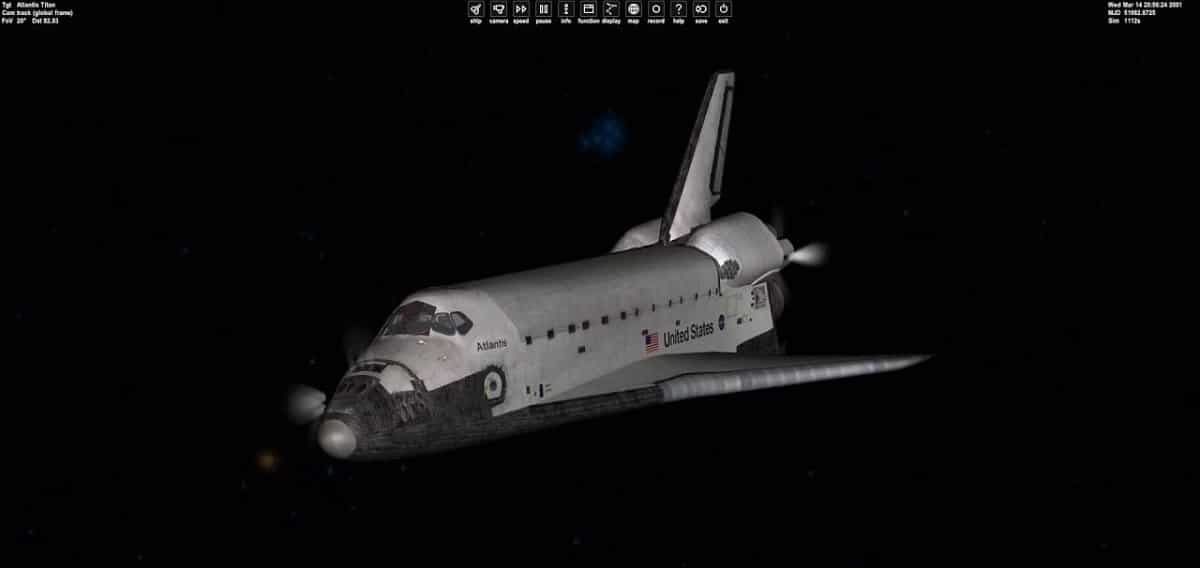
We recently shared here on the blog the news of the release of the D3D9On12 layer with which now various applications such as the vkd3d and VKD3D-Proton projects can be benefited and nowa following the milestone of releasing code from major projects, recently the release of the Orbiter Space Flight Simulator project was announced.
For those who are unaware of this, they should know that offers a realistic space flight simulator which complies with the laws of Newtonian mechanics. The motivation for opening the code is the desire to give the community the opportunity to continue with the development of the project after the author has been unable to develop for several years for personal reasons.
Dear Orbiter users and developers,
I have not been in this place for quite some time and for personal reasons I have not been able to push Orbiter development for a few years. To keep Orbiter alive and allow others to work on it, I have decided to release the sources under an open source license.
About Orbiter Space Flight Simulator
Orbiter is a simulator with interface focused on maneuvering a spaceship that allows the user to explore the solar system in an unlimited number of spaceships, as well as allows any user to explore the solar system in various spaceships, both real, such as the Space Shuttle Atlantis, and fictitious, such as the Delta-glider. .
In Orbiter the solar system consists of the sun and eight planets. Pluto, asteroids, and comets are not included in the original package, but can be added. Although Orbiter contains a database of more than 100 stars, these are not available as destinations for interstellar travel despite patches for faster-than-light flights.
In addition, It has an option to activate labels that indicate the situation and identity of objects in the solar system, such as planets, moons, or spaceships, displayed from a certain distance. Finally, labels can be placed on celestial bodies in the solar system for certain coordinates on their surface to indicate cities, historical places, geological formations, and other interesting sites.
This is essentially the 2016 edition with some minor fixes (and at least one major one). Hope this is of use to someone. The code is somewhat disorganized and poorly documented, but it should compile and leave you with a working Orbiter installation. Note that the repository does not include all the required planetary textures, so you must install them separately (for example, reusing an existing installation of Orbiter 2016 - this is explained in the readme file and only requires setting a CMake option before configure build).
The default control interface in Orbiter consists of two multifunction displays and a HUD, each with different modes of operation. In this mode all commands can be entered via keyboard or mouse.
The simulator also allows customization of dashboards and instrumentsIn addition, some ships have virtual cockpits in 3D and dashboards in 2D which allow the user to use the mouse to interact with the panels. The addition of a virtual cockpit allows the user to freely look around from the pilot's perspective.
The key difference between Orbiter and computer games is that the project does not offer the passage of any mission, but provides the opportunity to simulate a real flight, covering tasks such as calculating an orbit, docking with other vehicles, and planning a flight path to other planets. The simulation uses a fairly detailed model of the solar system.
The project code is written in C ++ with scripts in Lua and the recently released code is under the MIT license. Currently, only the Windows platform is supported and the build requires Microsoft Visual Studio. Published sources are for the "2016 Edition" with additional corrections.
If you want to know more about it, you can check the details In the following link.